Volunteer Programs in Zanzibar with African Impact
- Tanzania
- Zanzibar
About Program
Volunteering in Zanzibar is as incredible as it sounds. Located off the coast of Tanzania, this Indian Ocean island gem offers palm tree lined beaches, crystal clear waters rich with marine wildlife, and a uniquely blended culture. In this tropical setting, we invite you to have a rewarding adventure as a volunteer.
We offer a variety of options; our volunteer opportunities in Zanzibar include a teaching volunteer project, a nonprofit management internship, and a dolphin research project. As a volunteer in Zanzibar, you’ll become part of our African Impact family; a group of people from around the world dedicated to creating positive change.
Video and Photos
Diversity & Inclusion 💙
BIPOC Support
LGBTQIA+ Support
Impact 🌎
Sustainability
Ethical Impact
Our Child Protection Policy has been vetted and approved by Keeping Children Safe (KCS), who represent a commitment by organizations worldwide to safeguard all children from exploitation, abuse and violations of their human rights.
Program Highlights
- The tropical setting! Think swimming with dolphins and strolling on long stretches of white sandy beach.
- Work in rural and welcoming communities
- Enjoy the opportunity to contribute to marine conservation
- Experience unforgettable island adventures such as swimming with dolphins, going on sunset cruises in a traditional Dhow, and going on a tour of a tropical spice farm
- Assist in developing educational facilities to help improve the learning environment for children in the community
Program Impact
Teaching and Community Support Volunteer Program:
- Assist in developing educational facilities to help improve the learning environment for children in the community
- Create interactive educational games and sports activities for nursery school children to help promote positive early childhood development
- Assist in developing educational facilities to help improve the learning environment for children in the community
Dolphin Research and Marine Conservation Volunteer Program:
- Monitor dolphins in their natural habitat and study the impact of tourism on their behaviour
- Snorkel in beautiful coral reefs whilst collecting vital coral bleaching data
- Teach enthusiastic conservation club students and inspire them to look after their environment















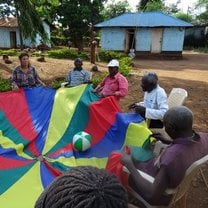
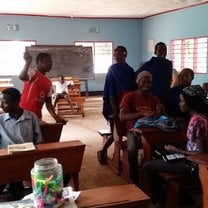
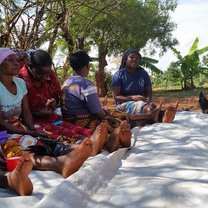
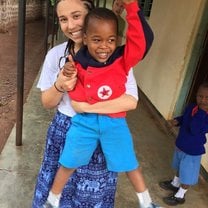
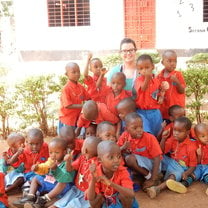
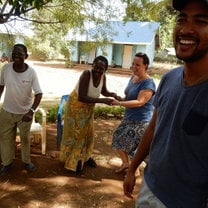
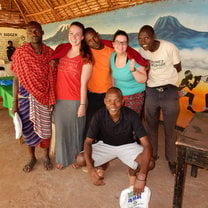
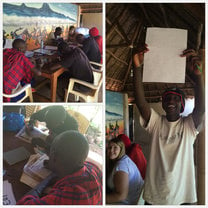
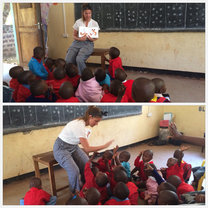
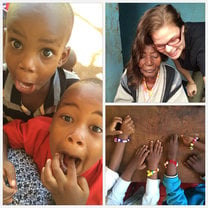
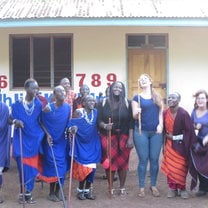
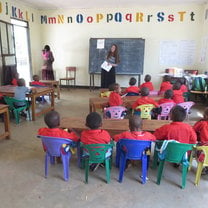
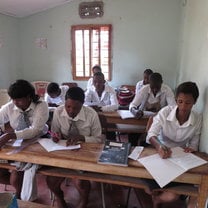
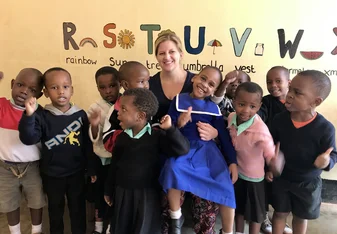





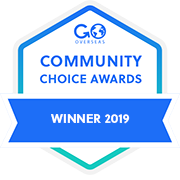


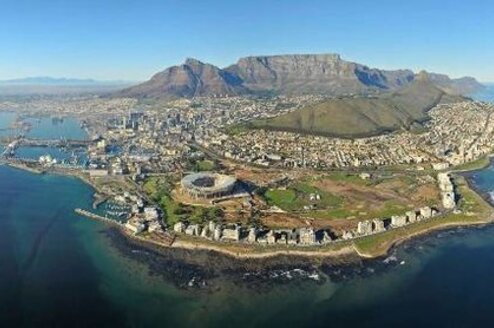
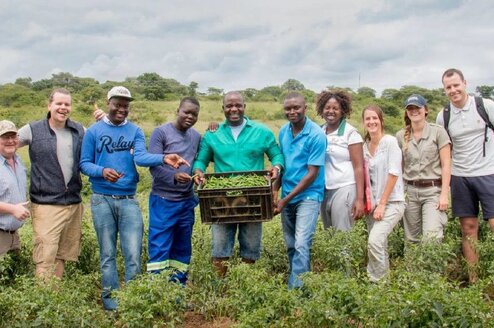
Response from African Impact
Dear Sherin,
Thank you very much for your feedback and we appreciate the points that you've raised, however we feel that we need to give further information regarding our activities and structure to give you some context.
You arrived during the Ramadan period where, based on consultation with our community partners, we adjust our program to accommodate the local people who are fasting. This was communicated to you prior to your arrival and as discussed at that time, our planning schedules do change over this period. It is important to be flexible, understanding and appreciative that our work is fully-dependent on the needs of the Jambiani community at that specific time, who were celebrating a very holy holiday.
During Ramadan, we do take part in more refurbishment and clean-up projects as requested by the community, but we do continue to run free informal English classes that are open to anyone in Zanzibar, as well as help with village needs as raised to us in the monthly local government meetings.
Our informal education classes in Jambiani are designed for people who cannot access formal education, to get them to a level where they can participate in standard educational options or obtain jobs in the tourism area, which forms the backbone of Zanzibar's economy. We also accept students who want to supplement their official education in our informal classes.
We do have a very set schedule for these classes because despite these classes being informal, we want them to be as sustainable and structured as possible for the students. We've worked with qualified teachers across our projects to design structures and curricula to ensure we cover the topics needed for future formal education or employment.
The programs are designed so that is easy to understand for both the student and the volunteer coming in to teach. This structure means that even though we have different volunteers coming through, there is a common learning experience for the student and a set curriculum for each class. We can therefore help our volunteers prepare for class each week during the preparation sessions and ensure they cover all the topics they need to during their time in the class.
If we were to allow people to come in every few weeks and teach what they want in class, unfortunately we feel that this would not be sustainable and not in line with our and the community's aims.
Since our project started, the majority of students who finish our higher classes have gone on to secure further education in Stone Town, the Jambiani Tourism Institute, or secured client facing roles in the tourism industry.
That being said, we do continually work to improve our education programs, and truly do value your feedback. We have been working hard to build a new education centre and look forward to some incredible achievements in 2017.
We have also made a number of changes on our Zanzibar project site to improve our program and invite you to take a read through the material available on our website that addresses important topics such as ‘Where Your Money Goes’ and our Responsible Volunteering Policy.
Thank you again for your feedback Sherin, we do want to ensure that while we not only serve the communities in need, we also ensure our volunteers have a positive experience and have certainly taken your feedback on-board.
The African Impact Team
Dear Simon,
Thank you very much for your feedback and we appreciate the points that you've raised, however we feel that we need to give further information regarding our activities and structure to give you some context.
Firstly, you arrived during the Ramadan period, where based on consultation with our community partners, we adjust our program to accommodate the local people who are fasting.
This was communicated to you prior to your arrival and as discussed at that time, our planning schedules do change over this period. It is important to be flexible, understanding and appreciative that our work is fully-dependent on the needs of the Jambiani community at that specific time, who were celebrating a very holy holiday.
During Ramadan, we do take part in more refurbishment and clean-up projects as requested by the community, but we do continue to run free informal English classes that are open to anyone in Zanzibar, as well as help with village needs as raised to us in the monthly local government meetings.
Our informal education classes in Jambiani are designed for people who cannot access formal education, to get them to a level where they can participate in standard educational options or obtain jobs in the tourism area, which forms the backbone of Zanzibar's economy. We also accept students who want to supplement their official education in our informal classes.
As you've mentioned, we do have a very set schedule for these classes because despite these classes being informal, we want them to be as sustainable and structured as possible for the students. We've worked with qualified teachers across our projects to design structures and curricula to ensure we cover the topics needed for future formal education or employment.
The programs are designed so that is easy to understand for both the student and the volunteer coming in to teach. This structure means that even though we have different volunteers coming through, there is a common learning experience for the student and a set curriculum for each class. We can therefore help our volunteers prepare for class each week during the preparation sessions and ensure they cover all the topics they need to during their time in the class.
If we were to allow people to come in every few weeks and teach what they want in class, we feel that this would not be sustainable and not in line with our and the community's aims.
Since our project started, the majority of students who finish our higher classes have gone on to secure further education in Stone Town, the Jambiani Tourism Institute, or secured client facing roles in the tourism industry. As you mentioned, the people of Jambiani deserve better education and what we're doing is trying to fill that gap so that they can gain access to formal education to help improve their livelihoods.
Secondly, the painting that took place during your time with us was at the request of the nursery school with which we work, who wanted us to help improve the children's working and learning environment. This was overseen by our local project manager, Dulla, who is significantly experienced in these activities. For larger work, including the building of our new Education Centre, we of course hire local skilled craftsmen.
Community buy-in is the key to our volunteer programs and without a need, or long-term sustainable plan, we do not operate. We are extremely proud of the relationship we have with the community of Jambiani and will continue to work closely with them for years to come.
Thank you again for your feedback Simon, we do want to ensure that while we not only serve the communities in need, we also ensure our volunteers have a positive experience and have certainly taken your feedback on-board.
The African Impact Team